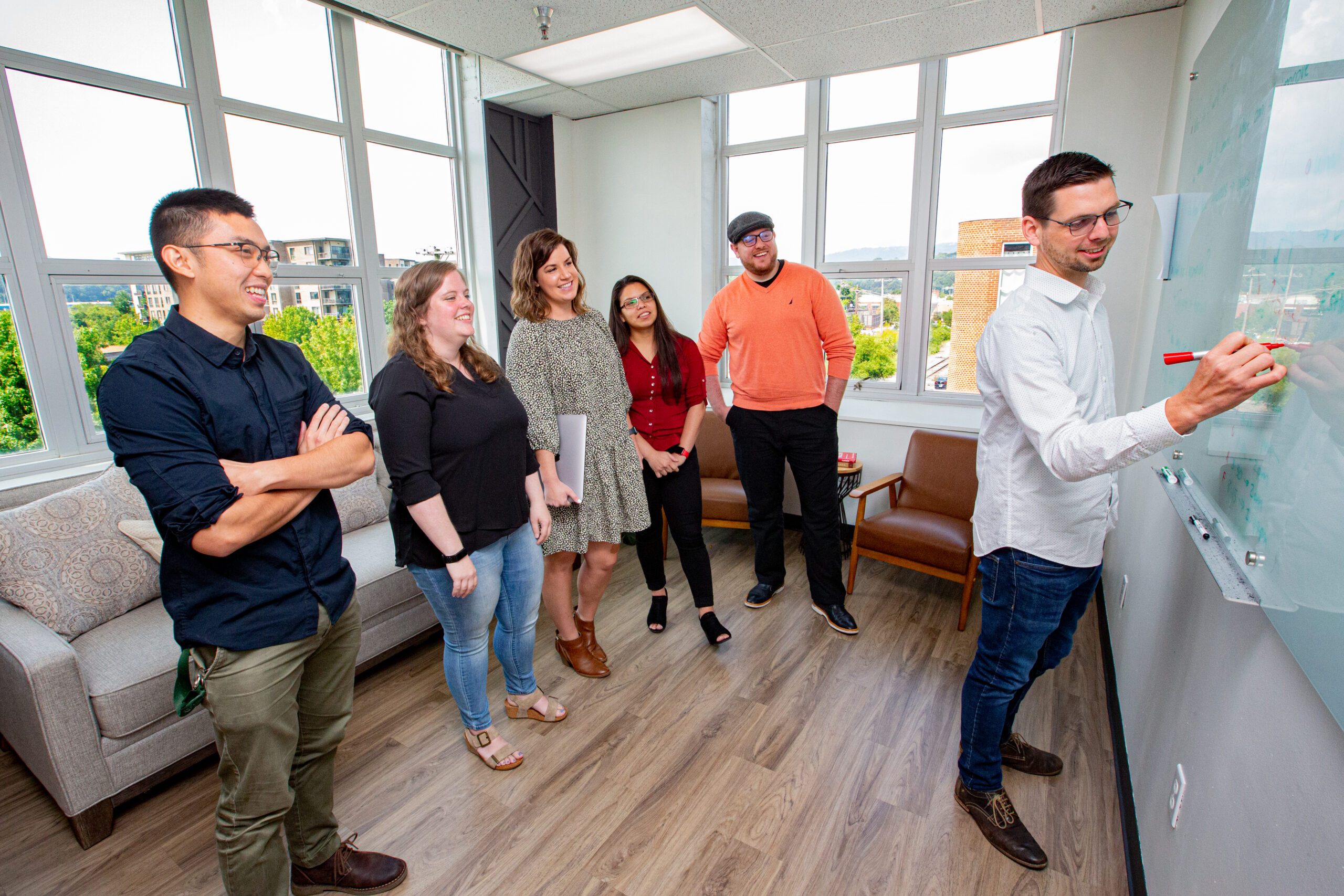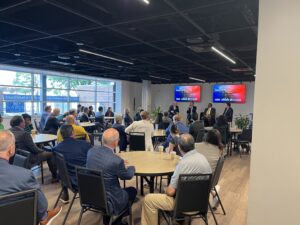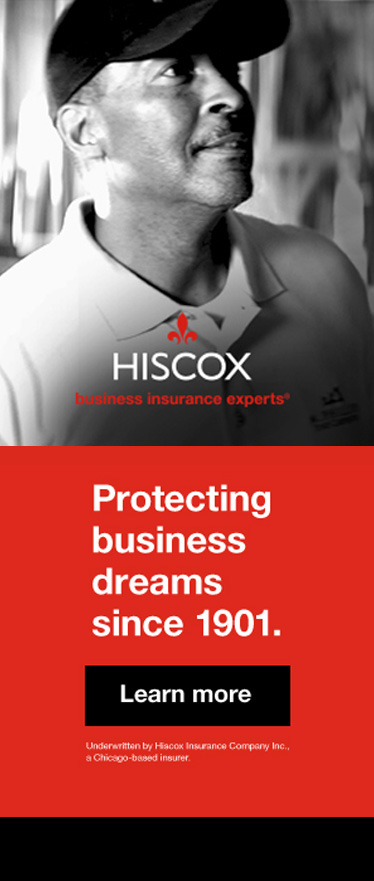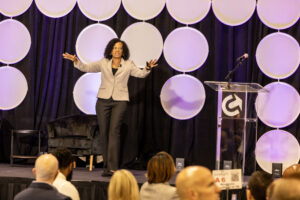Since the onset of the global pandemic, employers have scurried to keep pace with the ever-changing dynamic of employee relationships. Between “The Great Resignation,” “The Great Reshuffling,” “Quiet Quitting,” and a shrinking labor pool, the power pendulum swung more toward favoring employees’ needs and preferences. As the national post-pandemic economy stabilizes, however, organizations and their desired workforce are now contemplating what norms are likely to remain in place on the heels of such dramatic change.
To learn how local businesses have adjusted during and since COVID-19, TREND spoke with three industry leaders about what employees can expect in the coming year – and what employers must now focus on in order to attract and retain top talent.
Malcolm Harris, Director, Marketing and Community Engagement, Steam Logistics
Harris began his Steam career as an international salesperson working with imports and exports in 2019. His natural knack for forging connections with people landed him a leadership role in talent recruitment. Over a three-year timeframe, Harris went from onboarding more than 200 employees himself, to leading a team that would help grow the company to 850 people.
Throughout his time at Steam, Harris has observed a major organizational adjustment toward remote work, mostly from home.
“Our folks were able to have more time with their kids, they weren’t having to buy $12 lunches every day, and they developed a sense of greater comfort. They could cut back on childcare expenses. To be successful, healthy organizations should recognize these benefits and provide for a hybrid [remote/in-person] model,” he says.
The culture at Steam has similarly evolved to assign greater attention to work-life balance, and a foundation of trust between management and personnel.
“If an employee has a dentist appointment or a sick child, don’t think about whether they have the available PTO. Let the employee take care of it,” he says.
“Many of these little things, if handled correctly, add up and build an employee loyalty that you simply can’t replace. There’s no need to be fearful that someone’s taking advantage of the system.”
Harris values his rapport with colleagues and especially with Steam’s CEO, Jason Provonsha, who offers Steam’s employees the support needed to be successful. Harris explains that Steam’s leadership understands that while employee contributions to the company’s success are important, equally important is the employer’s willingness to help people reach their highest potential – that an employee’s time is the most valuable and finite resource, and it’s worth paying for.
Through companies like Steam, Chattanooga is increasingly fostering a competitive climate for talent recruitment among local major employers. “If one organization raises their standards for employee benefits, this inadvertently raises the standards of the others because now there’s a need to match that in order to compete,” Harris says.
Like Steam, other Chattanooga businesses are taking the approach of marketing the city’s best features for livability, offering hybrid, remote and in-person work options, as well as sign-on bonuses for new employees and loyalty pay for tenured employees. Harris emphasizes Steam’s focus on taking care of “little things” that help to relieve employee stress, financial or otherwise.
“For example, on Fridays our company often says, ‘Don’t go out and pay for your lunch today. Go downstairs to the food truck outside and pick up whatever you want.’”
Image courtesy of Whiteboard and Steam Logistics
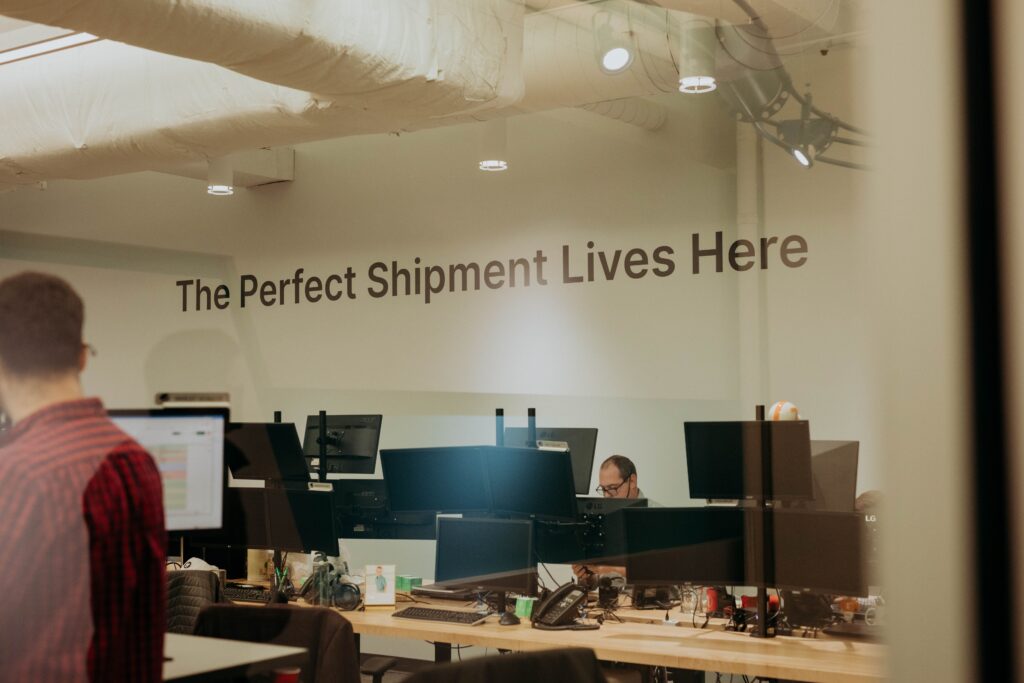
Image courtesy of Whiteboard and Steam Logistics
Ryan Dunlap, Owner and Chief Conflict Officer, Conflictish
After serving 14 years in law enforcement, Dunlap has developed a solid skill set in conflict de-escalation. Many traits he developed in public safety – like empathy, relationship management and deep emotional engagement – transfer into retaining top employees. He also spent six years in ministry as an executive pastor where part of his responsibility was retaining his congregation.
As the founder of Conflictish, Dunlap works directly with people in the areas of leadership development and organizational conflict resolution. His company relies on a model that puts the individual first to help resolve conflict and manage crises at organizations throughout the Southeast.
Dunlap sees leadership problems as the most typical root cause for high turnover rates and employee dissatisfaction. In his experience, motivated employees rise through the ranks chasing seniority or higher perks. This doesn’t always mean that a manager has appropriate skills to lead others. “Higher pay only goes so far,” Dunlap says.

“Some managers arrive at leadership positions only knowing how to manage themselves.”
One technique for employee retention that Dunlap recommends is to foster an open line of communication for continual feedback between managers and employees.
“People want to know how they’re doing, if they’re making progress or if they’re getting it right,” he says.
For organizations on an annual employee review schedule, this necessitates a shift toward holding monthly, even biweekly, check-ins. Dunlap believes annual reviews are too few and far between to effectively improve performance. Meeting more often gives employees a chance to share career goals and, if they choose, personal goals and challenges. This can open a door for employers to better motivate talent based on their individual interests and needs while also making a personal investment in retaining that employee.
Dunlap also calls on employers to invest in professional development, explaining that a long-held fear that employees will leave after reaching a certain level of training has changed.
“When organizations invest in their employees, those people become more loyal and are subsequently willing to go above and beyond the minimum of what’s required of them,” he says.
With this approach, employers may start to develop a reputation for producing confident, motivated employees who go on to have a positive impact on the greater community.
Development Counsellors International (DCI)
Since 1960, DCI has been the leader in marketing the tourism and economic development of cities just like Chattanooga. They work with local organizations, including our Chattanooga Chamber, to market our region throughout the world. In 2022 their efforts helped garner more than 1.12 billion media impressions featuring news about Chattanooga and its businesses.
Through their annual Talent Wars report, DCI sets out to better understand how to attract, and ultimately retain, talent. They interviewed 1,000 working-age people across the United States who recently relocated at least 100 miles from their previous residence to learn what persuaded them to relocate and what factors lead to talent retention post-pandemic.
Here are some key takeaways from Talent Wars, 2022:
Talent is increasingly unwilling to sacrifice quality-of-life for a job. With time to reflect, employees are reprioritizing what they want out of jobs and locations. There’s never been a time where talent has had as much flexibility and control in choosing not just a job but also a lifestyle.
Addressing your talent’s top needs (i.e. offering a better quality of life, being closer to family, and enhancing their lifestyle, respectively), while still addressing the more practical factors such as cost of living sets companies and communities for success.
Workplace models should adapt to the changing times. The old 9-to-5, onsite job isn’t returning for many industries, and employers must adapt accordingly. Even for those industries that require workers to be in-person, such as hospitality, need to rethink how they are letting employees work and how to maximize the likelihood of attracting and retaining workers.
Working with employers to implement new workplace models such as the “parent shift” (9 am to 2 pm) or the “firefighter shift” (four days on, three days off) could potentially help alleviate some of the talent shortages felt by companies. Helping companies brainstorm these “next practices” and then showcasing how companies in the community are working differently can be one more tool in your marketing arsenal for talent.
*This section was originally published through DCI’s Talent Wars report. Find the full report and learn more at: aboutdci.com/thought-leadership/talent-wars-2022.
